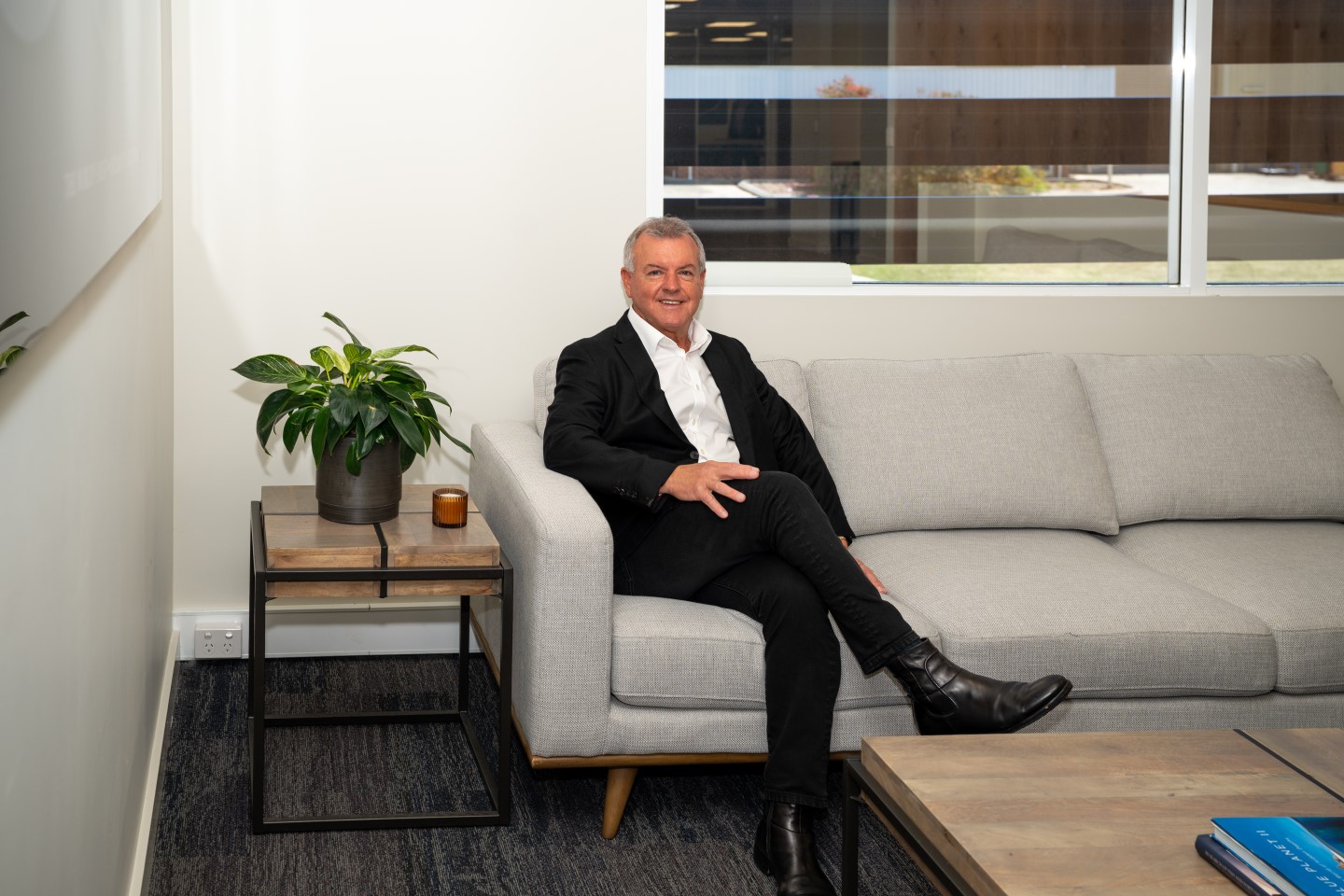Sustainability accreditations are helping WA businesses sell produce internationally.


Scallops from the Abrolhos Islands, octopus from Fremantle and Shark Bay prawns could be available on more menus and supermarket shelves as demand for sustainably sourced seafood grows.
Growing shareholder and consumer pressure on restaurants, hotels and supermarkets is helping drive a shift towards more sustainable seafood.
However, determining what wild-catch seafood can be classed as ‘sustainable’ in a world of overfished oceans is difficult.
Many classifications rely on the findings of international accreditation bodies, the largest and best-known being London-based not for profit the Marine Stewardship Council, which has certified more than 400 fisheries around the world.
Western Australia’s western rock lobster fishery was the first in the world to receive sustainability accreditation from the MSC, in 2000, and has since been reaccredited four times.
As of October 2021, the state government, in partnership with the WA Fishing Industry Council and Recfishwest, has supported 11 WA fisheries in achieving MSC certification.
The state government’s role in this process followed a 2012 decision to allocate $14.5 million for research and to help seafood businesses with costs associated with certification.
Receiving the MSC’s tick of approval can cost up to $US120,000 and take a business between 12 and 18 months.
To become accredited, businesses must score 60 and above against three criteria: sustainable fish stocks, a healthy local ecosystem, and compliance with relevant laws and adaptable to environmental changes.
If a fishery scores between 69 and 70, it will have five years to take action to improve performance so it scores above 80.
Once accredited, businesses can use the blue MSC label on their products. However, the credibility of the MSC certification has been questioned in the past.
In early 2020, Netflix released the controversial documentary Seaspiracy, which raised concerns about the thoroughness of the accreditation process in some cases.
A UK parliamentary inquiry called Sustainable Seas, in 2019, recommended the MSC update its procedures to ensure fisheries: use only certified fishing gear to catch certified stock; factor in carbon from ships; address concerns about shark finning; and remove barriers for small-scale fisheries to receiving certification.
The MSC updated its certification process in 2020 to ensure the correct equipment was being used to catch target fish and addressed concerns about shark finning.
Despite the criticism, the MSC standard is used by companies including Coles, Woolworths, and the Hyatt to determine whether products are considered sustainable.
MSC’s annual report showed the volume of certified seafood sold increased by 6 per cent between April 2020 and March 2021 around the world.
Market opportunity
The Abrolhos Island and Mid-West Trawl Managed Fishery last month became the 11th fishery in the state to receive MSC certification.
One of the companies to hold licenses in the area is family business Far West Scallops.
Sales and marketing manager Simon Ch’ng said suppliers, especially those from Hong Kong, had been asking when they were going to be certified for several years.
“We keep getting told [that] if we want to keep selling into this market, we need to have MSC certification,” Mr Ch’ng told Business News.
He hoped it might offer opportunities to sell into new markets.
“The other thing that it may lead to is potentially the opening up of new markets, particularly in Europe,” Mr Ch’ng said.
“MSC certification products can sell at a large premium.”
Mr Ch’ng said the business had been on track to achieve certification earlier, but was set back by a heatwave, which depleted scallop stocks and forced the fishery’s closure from 2012 to 2016.
He said Far West’s boats limited bycatch by using exclusion devices, which offered an escape hole in the net for larger animals such as turtles and dugongs.
Overfishing was also limited by the state government’s strict rules on how many scallops could be fished each year to ensure future fish stocks.
Prior to COVID-19, Far West Scallops sold 80 to 90 per cent of its product overseas, mainly to Singapore and Hong Kong.
Now, Mr Ch’ng said, most product was sold locally, with about 30 to 40 per cent going overseas.
A recent deal with Coles and a growth in the popularity of cooking scallops, which Mr Ch’ng credited to cooking shows such as Masterchef, as well as the closure of restaurants due to the pandemic, were behind the change, he said.
The pressure to ensure the company had sustainable practices also came from Coles, which requires an audit of its own before selling the products.
Western Australian Fishing Industry Council chief executive Darryl Hockey said initially he thought consumer demand would drive retailers to provide products with the blue tick, but instead businesses were making the decision for consumers by only choosing to stock certified products.
“Quality and price are still the primary determinants when it comes to people doing their purchasing,” Mr Hockey told Business News.
“What we are seeing, particularly in regard to supermarkets or bigger stores, the business leaders are taking ownership and making decisions on behalf of the consumers.”
He said this had put pressure on producers to become certified.
“It’s now becoming increasingly evident that if you want to sell your product across the community and have your product sought by the purchasers, then you are going to want to have those standards,” Mr Hockey said.
The state’s octopus fishery is only one of two in the world to be MSC certified, providing a unique opportunity for WA octopus businesses.
O’Connor-based Fremantle Octopus controls 56 per cent of the licenses in the state, with 81 per cent of those in the primary catch zone.
“When people are looking for a wild-caught fishery that’s sustainable, in other words, that the fishery has not been over-fished and the species isn’t in danger, our fishery is one of two accredited fisheries in the world where we go about fishing for octopus sustainably,” Fremantle Octopus chief executive Glenn Wheeler told Business News.
Mr Wheeler said the fishery had huge capacity to grow.

Abalone can be grown on man-made concrete structures. Photo: Ocean Grown Abalone
Commercial octopus fishing in WA is a relatively new business, with the state’s managed octopus fishery established in 2015.
At the time, the Fisheries Research and Development Corporation calculated there were between 8,000 and 12,000 tonnes of ‘biomass’, or octopus, in the area.
It said businesses could catch a combined total 1,000-2,000t of biomass annually without depleting the resource. Mr Wheeler said the current catch of the fishery was about 250t.
Fremantle Octopus is planning to use momentum achieved through certification to list on the ASX within the next year.
It already has several investors, including SG Hitchcock, Acorn Capital, CBC, Tribeca, and well-known families including the Bunning family, which founded hardware store Bunnings, and the Cowin family, which is behind several fast-food companies.
Fremantle Octopus was a first mover in the local sector, having invented a unique way to catch octopus called the trigger trap, which eliminates bycatch.
The rectangular trap sits on the ocean floor and is activated when an adult-sized octopus tries to eat the bait on the back wall of the box, catching the octopus.
Fisheries Research Report No. 270, 2016 said the invention kickstarted the commercial octopus fishing industry in WA, increasing the number of vessels from six in 2009 to 17 by 2013.
There are now more than 35 vessels operating in the fishery, according to documents uploaded to the MSC website late last month.
Fremantle Octopus now catches enough to export to Hong Kong, China, the US, Singapore, and Dubai, as well as supplying Australian restaurants.
Its products were first stocked in Coles stores in WA in 2020, with a roll-out to 619 stores nationally in March this year.
Mr Wheeler said the biggest challenge now was to ensure the business could take enough octopus to fulfil orders, given the unpredictable nature of wild-catch fishing.
“The national and international demand for octopus currently outweighs our capacity to catch,” he said.
“We worry that we run into Christmas and we run out of stock.”
A recent name change by ASX-listed Ocean Grown Abalone, now called Rare Foods Australia, highlights the volatility of relying on wild-caught seafood.
Rare Foods Australia chief executive officer Rob Jorden said the change accompanied the company’s decision to diversify.
Along with its ‘abitats’, which provide a home for green lip abalone to grow in the ocean before they are harvested, Rare Foods recently signed an agreement with Yumbah Aquaculture to investigate the feasibility of a hatchery and farmed abalone site in Esperance.
“The brand name change underpins what we are going to do, how we are going to de-risk our core business,” Mr Jorden told Business News.
The new name also allows the company to add different products to its repertoire as it grows.
Mr Jorden said the change also aligned with the company’s focus on premium seafoods and desire to position its Two Oceans Abalone product with high-end restaurants and chefs in the Australian market.
He said sustainability had been a large part of the business from the start, with the company’s patented ‘abitats’ designed to find a way to assist wild abalone to reproduce.
The process, developed over 20 years, involves juvenile abalone being grown in hatcheries on land and placed on artificial reefs made of concrete.
The abalone are sustained by the ocean and protected and monitored by divers until they are harvested three years after seeding.
The Department of Primary Industries and Regional Development is supporting an MSC assessment of Rare Foods Australia's ranching process.
If it is approved, it will become the state’s first certified aquaculture operation under the MSC scheme.
Local taste
Opportunities to enter the local market and replace the large amounts of imported seafood are also growing as people become more interested in where their food comes from.
The Department of Agriculture estimates about 70 per cent of seafood eaten in Australia is imported.
Seafood supplier Endeavour Foods has been selling local and international products into some of the state’s top restaurants for the past two decades.
It sells to Crown Perth restaurants Modo Mio, Nobu, and Rockpool Bar & Grill, Young George in East Fremantle, Bib and Tucker at Leighton Beach, and Leeuwin Estate in Margaret River.

John and Sophie Sharland run Endeavour Foods. Photo: David Henry
Endeavour Foods founder John Sharland said the restaurant scene had changed since he started the business in 2000, with chefs and customers more interested in where products came from.
He said the trend had grown since the beginning of the COVID-19 pandemic, as people increased their focus on buying local products.
Endeavour Foods general manager Sophie Sharland said smaller and price-friendly restaurants were figuring out how to get more local products onto their menus.
“You’ve got certain restaurants that might have budgets which potentially suit an imported product more, but they do try and review their menu and see how they can work an Australian alternative into their menu, whether that might be serving a slightly smaller portion or charging a slightly higher price without going too far, they are looking at those options,” Ms Sharland told Business News.
“Before it was a no-go area, but now they are understanding the importance of pushing Australian products on menus and the feedback they get from clients eating the product.”
Bycatch, the seafood unintentionally caught when fishing for a target species, is one of the key environmental issues in the fishing industry.
But Ms Sharland said some species caught as bycatch proved popular among local chefs and there were often waitlists to buy them.
“Bycatch is seen to be a negative thing but the amount of bycatch these fisheries get on their boats is very limited,” she said.
“We often have waiting lists for those particular products that present great value because they are lesser-known species, but the quality is amazing and they can do all sorts of things with that particular product.”












